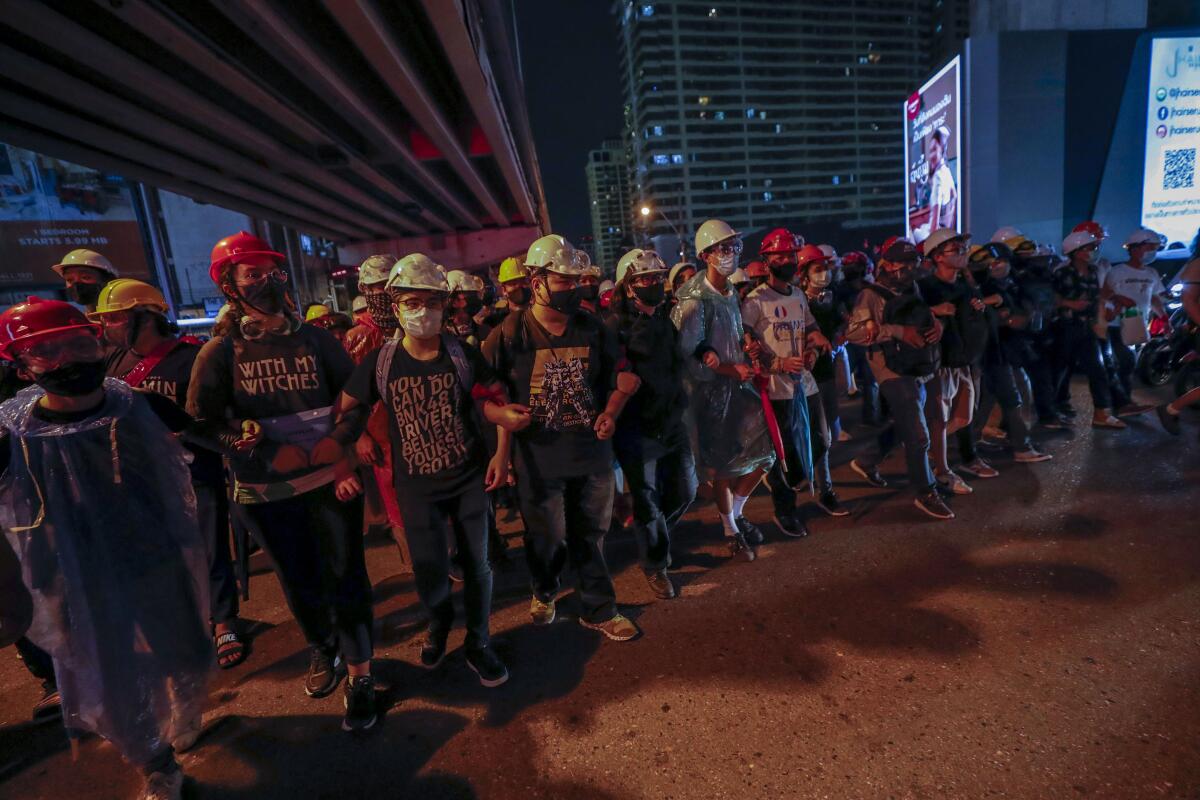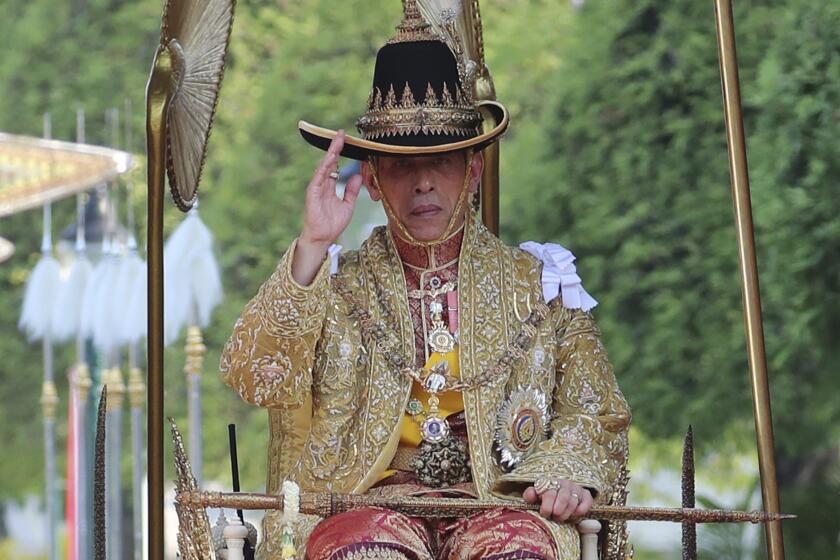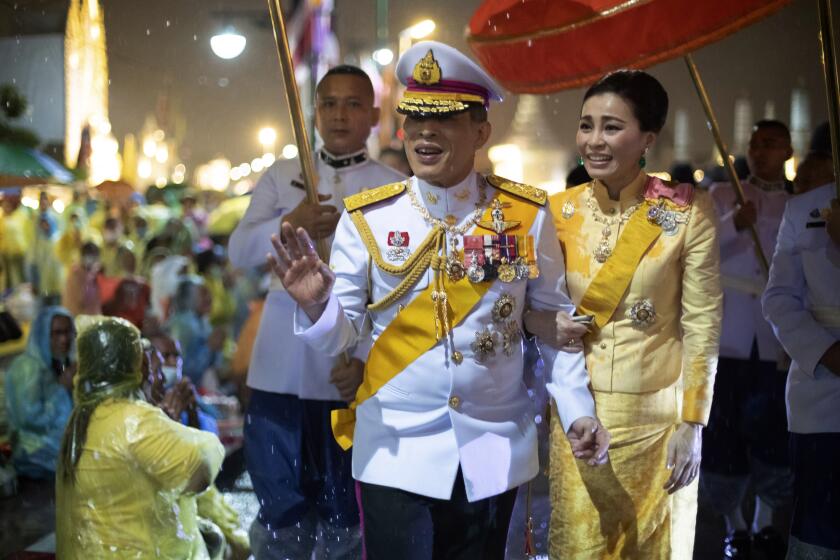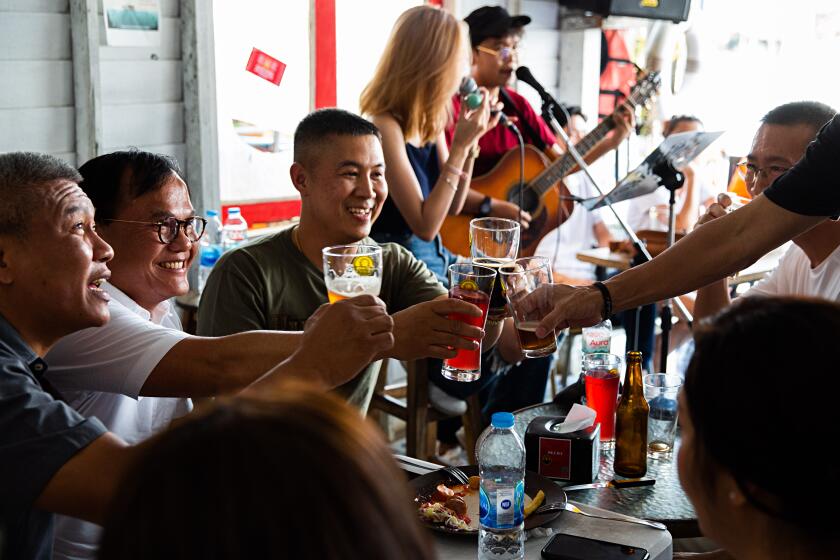Thailand lifts state of emergency in Bangkok in bid to calm protests

- Share via
BANGKOK — Thailand’s government Thursday canceled a state of emergency it had declared last week for Bangkok in a gesture from the embattled prime minister to try to cool massive student-led pro-democracy protests.
The emergency decree had banned public gatherings of more than four people and allowed censorship of the media, among other provisions. It was challenged in court by an opposition party and a group of university students.
The revocation announcement, which went into effect noon Thursday, declared that the situation had been mitigated and could now be dealt with by existing laws.
Prime Minister Prayuth Chan-ocha went on national television Wednesday night to appeal to pro-democracy protesters to reduce political tensions and promised to lift the emergency measure.
“I will make the first move to deescalate this situation,” he said. “I am currently preparing to lift the state of severe emergency in Bangkok and will do so promptly if there are no violent incidents.”
As he was speaking, demonstrators marched near Government House, his office, to demand that he step down. They also asked for the release of those arrested in connection with earlier protests.
Thailand’s King Vajiralongkorn is facing demands for limits on his powers and public oversight of an estimated $70 billion in crown wealth.
They said that if their demands were not met, they would return in three days. Although the protesters pushed their way through police lines, neither side resorted to violence.
The protesters are calling for a more democratic constitution and reforms to the monarchy. The implicit criticism of the monarchy has stirred controversy because it traditionally has been treated as sacrosanct and a pillar of national identity.
On Wednesday, royalists held rallies in several cities, in many cases led by local civil servants, in what they said was defense of the monarchy. At a small rally in Bangkok, fights broke out between anti-government protesters and palace supporters.
Wednesday marked the eighth straight day of demonstrations by the pro-democracy movement that was launched in March, even though many top protest leaders have been detained.
Massive protests have greeted the monarch on his return to Thailand while lawmakers raise legal questions in his adopted home, Germany.
Prayuth, who took power after a 2014 military coup, pleaded with his compatriots to resolve their political differences through parliament.
“The only way to a lasting solution for all sides that is fair for those on the streets as well as for the many millions who choose not to go on the streets is to discuss and resolve these differences through the parliamentary process,” he said in his taped televised speech.
The government Tuesday approved a request to recall the parliament to deal with the political crisis in a special session next Monday to Wednesday.
A leader of the opposition Pheu Thai party said Thursday that he was not impressed that Prayuth had lifted the emergency decree.
It’s not just pilsner; it’s politics. An army colonel is training home brewers who are defying the kingdom’s ban on artisanal beer production.
“He’s really doing it to protect himself. Why? Because if he didn’t lift the emergency decree today, and the court ordered the temporary protection of the protesters, it would mean all his orders and announcement relating to this were illegal,” said lawmaker Cholanan Srikaew.
Authorities on Wednesday suffered a legal setback when a judge barred them from implementing orders banning several media outlets because they failed to follow proper procedures.
Police sought to impose censorship on media reporting of the protests, citing what they called “distorted information” that could cause unrest and confusion. They want to block access to the online sites of four Thai news organizations and one activist group that broadcast live coverage of the protests.
More to Read
Sign up for Essential California
The most important California stories and recommendations in your inbox every morning.
You may occasionally receive promotional content from the Los Angeles Times.













